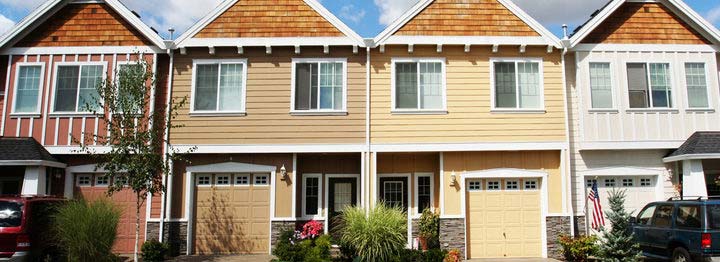
Finding reliable tenants is half the battle in property ownership. A reliable tenant will be able to pay you rent on time, will likely stay with you for a long time, and has a low likelihood of causing damage to your property or disrupting your other tenants. A good tenant, therefore, makes your rental property more profitable—all while causing less stress for you over the long term.
Tenant screening is the usual process landlords use to recruit the best tenants for their units, and through it, you’ll be able to filter out candidates with a questionable rental history, bad credit scores, or other red flags that make them liable to cause issues. But tenant screening only works for taking your existing applicants and finding the best candidates among them.
So, what can you do to make your property more attractive to high-quality applicants in the first place?
This one may not be helpful if you already have a property, but if you’re just getting started or if you’re trying to add a new property to your holdings, it’s a good one to keep in mind. Invest in a property that’s in an area with low crime rates, good property values, good school systems, and access to amenities like restaurants and stores. If you can, get to know the neighbors and see if the average tenant would get along with them. These properties may cost you a bit more up front, but they’re likely to appreciate in value over time, and are far more likely to attract professional, reliable tenants.
Setting a rent price is rarely straightforward, but it’s an important variable to consider if you want to attract the right tenants for your property. One of the easiest ways to set rent prices is to see what other landlords in the area are charging and mimic them (adding or subtracting to compensate for the differences your property offers).
However, you can set your prices lower; this will increase the number of applications you get and could fill your property faster. The downside is that these tenants may have less income or less reliable income, and because you’ll be getting more applications, you’ll also be dealing with more low-quality tenants.
Instead, it may be wise to increase your rent prices, even slightly—it may take you longer to fill your vacancy, but you’ll attract better candidates. Psychologically, people place more value on more expensive things, so you might even end up with more satisfied tenants.
You may not be able to completely remodel, but you can offer some extra perks for your tenants that “sweeten the pot.” For example, you could install onsite washers and dryers to make it more convenient for your tenants to do laundry, or you could offer free internet to the unit as an added luxury. Perks serve as good tiebreakers between competing units, so they could make the difference in the types of tenants you receive applications from.
This is a simple and obvious step, but an important one. As a landlord, you’ll be communicating with your new applicants, and their impressions of you could affect whether or not they want to move forward with the rental. If you seem brash or difficult to work with, tenants with an intention of a long-term stay may prefer to find someone friendlier or more communicative. You don’t need to be your tenants’ best friend, but you should be able to offer easy communication, flexible understanding, and a smile when meeting in person.
The kitchen and the bathroom are two of the most important rooms for your property, so if you can afford to make upgrades, make them here. The difference between an old and new bathtub, or between old and new countertops, can make a significant difference in the eyes of a stable, choosy tenant. Plus, you’ll be able to charge more for rent, and you’ll increase the value of your property at the same time. Kitchen and bathroom remodels can get expensive, but they’ll be able to provide you a positive ROI in the span of just a few years.
You’ll also want to improve the curb appeal as much as possible. “Curb appeal” updates don’t necessarily make the property more structurally sound or more comfortable, but will make a better first impression with your potential tenants, attracting a better crowd. You can improve the curb appeal of your unit by investing in gardening and lawn care, fixing anything that appears to be broken or dirty on the outside, adding a fresh coat of paint, and making the inside of the unit as tidy and presentable as possible. If you’re giving a tour, you might even add a fresh scent to make the apartment more attractive to good candidates.
If you know you want to appeal to a certain audience, target your marketing and advertising toward them. For example, if you’re seeking young families, you can emphasize the proximity of schools, or if you’re trying to attract professionals, you can mention how easy it is to get downtown on weekdays from your property. You’ll also want to take lots of images and videos of your property to include in your advertising—and get them professionally done, if you can. Attractive, accurate imagery will entice better and more interested tenants.
These strategies should cumulatively allow you to attract better tenant applications, giving you more high-quality tenants to choose from and easing the stress on your tenant screening process. However, it’s still important that you screen your tenants regularly if you want to ensure the profitability and consistency of your property.
If you need help finding and keeping the best tenants for your property, consider using property management services. Contact Green Residential for more information on how we can help your property become more profitable.
